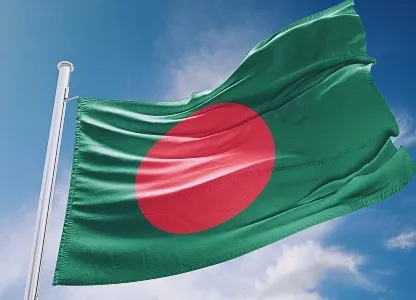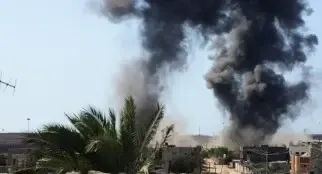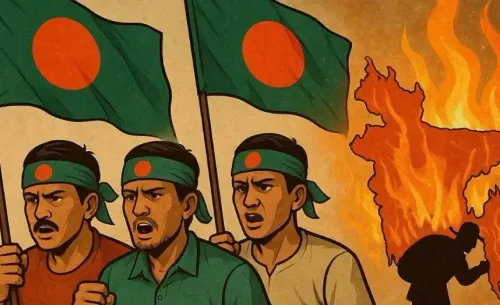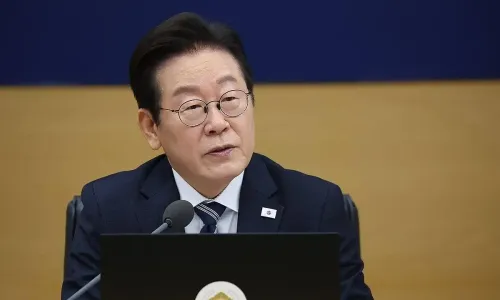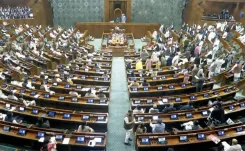UN Relief Organizations Celebrate Gaza Ceasefire Despite Aid Delivery Challenges
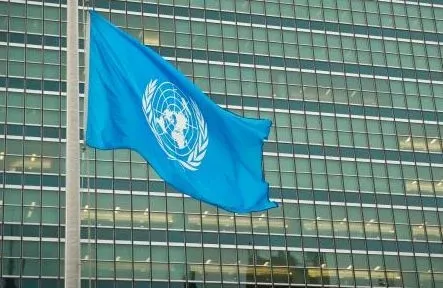
Synopsis
Key Takeaways
- UN agencies are urging for urgent humanitarian aid in Gaza.
- Ceasefire needs to remove obstacles for aid delivery.
- Protection of civilians and infrastructure is essential.
- UNICEF stresses the importance of a secure environment for aid.
- Challenges in delivering aid still persist despite the ceasefire.
United Nations, Jan 16 (NationPress) UN relief organizations and humanitarian workers, under the leadership of Secretary-General Antonio Guterres, expressed their approval of the ceasefire agreement between Israel and Hamas, urging for a significant enhancement of humanitarian efforts.
Guterres emphasized that the primary goal of the world body must be to alleviate the suffering inflicted by the conflict once the ceasefire is enacted on Sunday. He called for swift, unrestricted, and secure humanitarian assistance for all civilians in need, as reported by the Xinhua news agency.
“It is crucial that this ceasefire eliminates the considerable security and political barriers to delivering aid across Gaza, allowing us to provide a substantial increase in urgent lifesaving humanitarian support. The humanitarian crisis is at catastrophic levels,” he stated.
Tom Fletcher, the Under-Secretary-General for Humanitarian Affairs and the UN relief chief, mentioned in a statement that the ceasefire agreement brings much-needed optimism to millions affected by the conflict.
He noted that humanitarian organizations have been preparing supplies outside Gaza to boost aid delivery in the region.
“We will strive to respond with the ambition, creativity, and urgency this moment demands, despite the significant security and political hurdles we face,” Fletcher said. “To assist in saving lives, we call on all parties to fully comply with international humanitarian law.”
Fletcher added that this compliance entails safeguarding civilians and civilian infrastructure, ensuring aid workers have safe and unobstructed access to those in need, and removing all barriers to the entry of essential aid.
He stressed that it is essential for Israel to allow the entry of commercial supplies alongside admitting UN humanitarian workers and their partners into Gaza.
Catherine Russell, the executive director of the UN Children’s Fund (UNICEF), welcomed the ceasefire announcement as being long overdue for the children and families of Gaza who have suffered more than a year of bombardment and deprivation, as well as for the hostages in Gaza and their families in Israel.
“UNICEF and partners are prepared to scale up our response,” she stated. “The ceasefire must finally provide humanitarian actors with the opportunity to safely implement the vast response inside the Gaza Strip that is critically needed.”
The aid response must guarantee unrestricted access to all children and families for essential food and nutrition, health care, psychosocial support, clean water, sanitation, education, learning, cash assistance, and the resumption of commercial trucking operations, Russell articulated.
Highlighting the collapse of crucial services throughout Gaza, Russell emphasized the urgent need for action to preserve lives and assist children in recovery.
“Less than half of Gaza's 36 hospitals are operational, increasing the risk of infectious disease outbreaks and endangering children,” she noted. “Water production is at less than 25 percent capacity. Nearly all of Gaza's 2.1 million residents are facing high levels of food insecurity. Additionally, 95 percent of Gaza's educational facilities have been damaged or destroyed.”
Russell added that a secure environment is vital for UNICEF to enhance screening and treatment for malnourished children, facilitate vaccination catch-up for 420,000 children under five, and support the prevention of disease outbreaks, including polio, measles, and cholera.
The Office for the Coordination of Humanitarian Affairs (OCHA) reported earlier that efforts to scale up aid operations are ongoing despite persistent challenges. Humanitarian workers have long voiced concerns about Israeli authorities in Gaza obstructing or hindering aid deliveries.
Stephane Dujarric, spokesperson for the secretary-general, informed reporters at a regular briefing that Israeli authorities continue to block UN-led efforts to reach the North Gaza governorate, where Palestinians have faced a siege for over three months.
He stated that attempts made on Tuesday and Wednesday to deliver essential humanitarian assistance to besieged areas were denied. Across Gaza, the UN had planned 21 coordinated humanitarian missions, but less than half were executed. Seven were outright denied, and four faced impediments.


